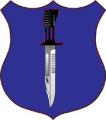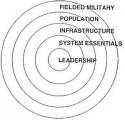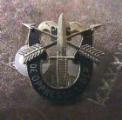Even though we speak of ends, ways, and means, realistically we actually think of the process in terms of ends, means, and ways. The ends (or end state) drive the purpose of the campaign. The means determine how that can be accomplished and have to be considered before you can realistically determine the ways. Put another way, to be able to accomplish certain ways of approaching the campaign requires you to have resources; the resources, or means, determine just how ambitious or constrained you will be in determining the ways to accomplish the mission. [...]
Before a friendly analysis of ends, ways, and means, the enemy must be thoroughly examined in the same manner. The key to determining the means available to the enemy is found in the intelligence estimate in a paragraph called the “enumeration of enemy capabilities.” This list should be a comprehensive list of all of the resources and capabilities available to the enemy. Do not let your intelligence staff officers cheat on this step; it is critical that you assess all the means that are available to the enemy. In a stability operation or insurgency, this is even more important. Not only does the enemy have military forces, but he also will likely use paramilitary forces and insurgents, engage in information operations, and leverage the instability of refugee camps. Today no one wants to take on the United States in a conventional “fair fight” on the battlefield, so our enemies are looking for means to attack us and still get the ends they want. Their means are only limited by their imagination. Many of our enemies will use means that we have not thought of before and would not use even if we had thought of them. Think of those means when considering the means available to the enemy because you may see them in the campaign. Use creative thinking to analyze what the enemy has available to him.
For friendly means, one key document as a starting point is the task organization that indicates allocated and apportioned forces. It is important to have a good feel for all the assets that are available to the campaign planner and when they will be available (force flow). Other critical means that can be brought to bear in the campaign are assets that do not belong to the commander but are conducting activities in theatre that help accomplish objectives. It is critical to be aware of all the nongovernmental organizations (NGOs), private voluntary organizations (PVOs), and other governmental agencies (OGAs) in theatre—as well as the media and commercial contractors—and to understand what they can and cannot do. If there is a potential refugee problem in theatre, you can be sure that you would prefer to have the NGOs and others help you keep that under control, even if you have to lend a hand once in a while.
During the initial phases of OIF, a lot of non‐infantry units found out that they could be used for patrols; a lot of non‐MP units found out that they could be used for law enforcement. Do not let “rice bowl” issues keep you from being creative in how to use the assets that are made available in theatre. Units can be given nonstandard missions, and planners must be creative in how they apply assets to each problem. Another important consideration when determining the means available is to think beyond the initial stages of the campaign. For example, engineer assets are critical in both offensive and defensive operations in support of manoeuvre units, but they may have a different focus and “customer” for stability operations. Rotary and fixed‐wing lift will be important for offensive and defensive operations and perhaps even more important for stability operations. You cannot have enough MPs in a stability operation; be prepared to give that mission to other units when the time comes.
Once you have determined the end or end state and you have a comprehensive understanding of the resources and means that are available to you, you can determine the ways—the methods you will use to develop your COA. [see attached JPEG] (pp.20-22)







 Reply With Quote
Reply With Quote








Bookmarks